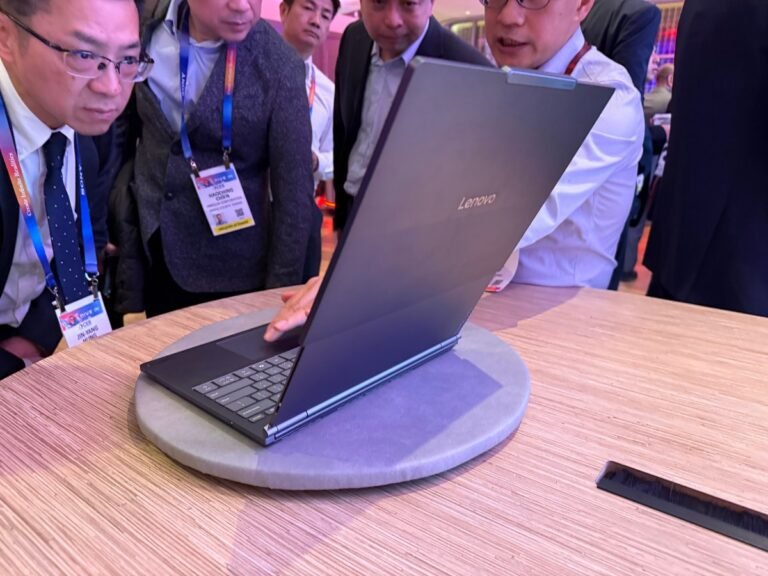Big companies are not known for taking risks. This is as true in the world of consumer hardware as anywhere else. Annual updates are largely incremental, with small changes to things like screen resolution or image quality.
It’s a phenomenon that Lenovo is happy to dismiss when it introduces the latest updates to its PC lineup each year. The offerings are generally a mix of product and concepts, the latter of which may never see the light of day, but serve as a constant reminder of what’s still possible for PC makers to think outside the box.
CES 2025 marked the transition of the rolling laptop from concept to product. The ThinkBook Plus Gen 6 will arrive later this year, for the low, low price of $3,500. The centerpiece of the product is a screen that mechanically extends up to 16.7 inches. It’s not an instant transformation — in fact, the actual unfolding process is subtle. But you’ll only need to wait about 10 seconds for it to get from point A to point B.
The easiest answer to the product’s “why” is “because it’s neat.” More realistically, however, is the ability to carry around a significantly larger screen in a relatively small form factor. In this respect, it is in principle similar to flip phones.


A few other products shown at CES are still firmly in the concept phase, but warrant mention here. First is a large-screen desktop, which uses built-in motion tracking to track the user. Adjusts height or moves left or right. It’s essentially the desktop version of the animated Auto Twist AI PC that the company introduced in September.
Specifically, the case and base of the system were made from a combination of bamboo and corn, in an effort to move towards a more sustainable material construction. The system featured a wireless keyboard that charges solely using the display’s ambient light.
